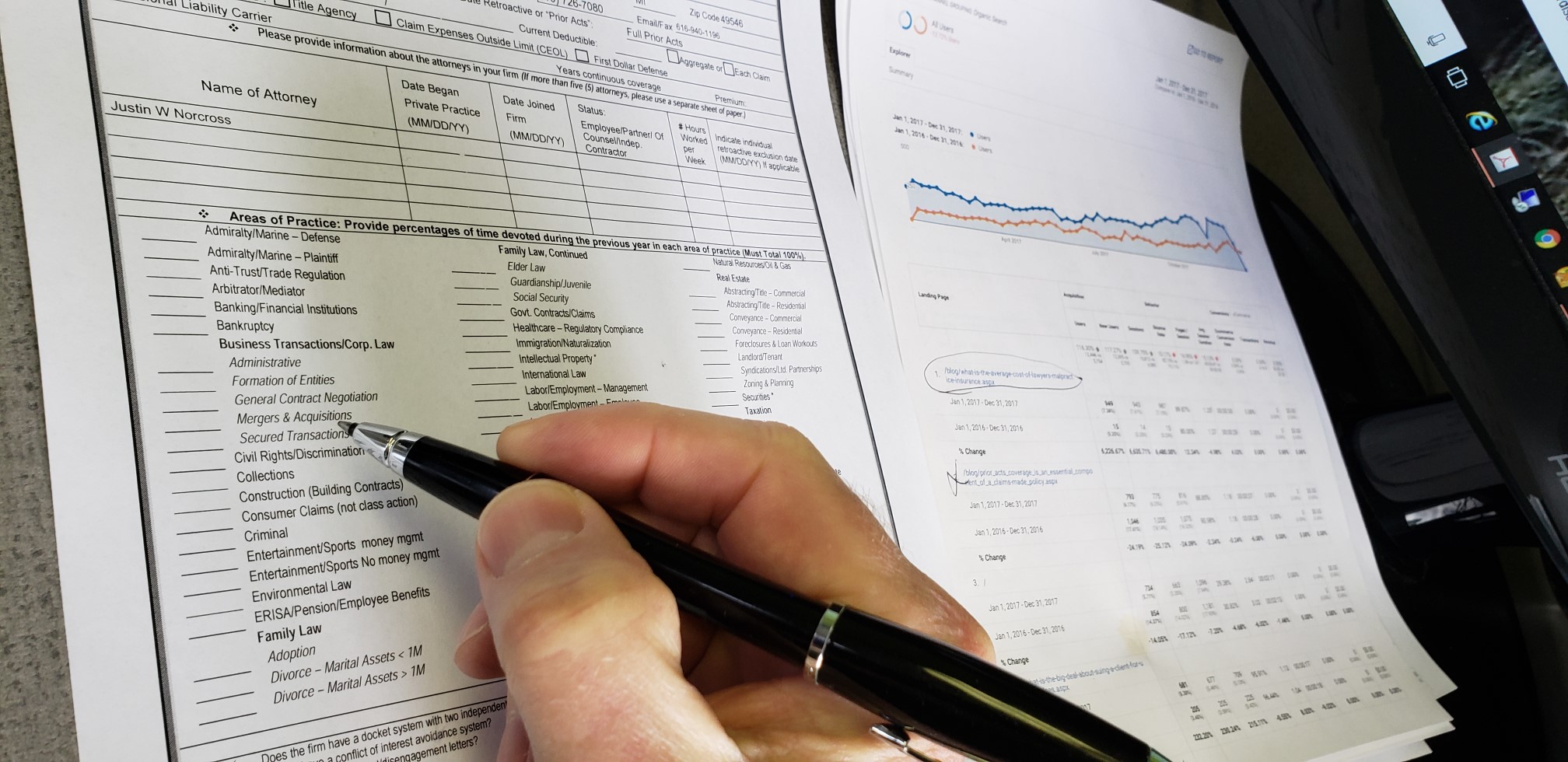 Many law firms do not answer these questions correctly on the Lawyers Professional Liability Insurance application. Some law firms might perceive this to be no big deal. When not answered correctly, it could lead to claims being denied (an extreme case), but likely additional underwriting questions and/or a premium that may be much higher or lower than it should be.
Many law firms do not answer these questions correctly on the Lawyers Professional Liability Insurance application. Some law firms might perceive this to be no big deal. When not answered correctly, it could lead to claims being denied (an extreme case), but likely additional underwriting questions and/or a premium that may be much higher or lower than it should be.
For instance, if the law firm puts down on the area of practice grid year after year that the only thing the firm does is criminal law, when the firm is only doing class action plaintiff cases then there may be coverage issues from the claims department when a class action claim arises. On the other hand, if the firm never did any class action work until this year, but always did criminal work and the area of practice grid was accurately filled out to state criminal work, then the claim for the class action work should not be an issue with the carrier.
What happens for many firms is that they are afraid that if they do not put on the area of practice grid things that they might do for the coming year, but did not do in the past year it could cause a coverage issue. Law firms do not properly read the area of practice question, which is normally states to give the percentage of work (either billings or hours) that you have performed in the past year for each area of practice. In some cases this issue is caught because the supplements associated with certain areas of practice cannot be filled out correctly; for instance the real estate supplement might ask how many closing has the firm done in the past year or the average value of the real estate transactions. When the supplement comes back with all zeros, it is easy to determine that no real estate work was done. But it does cause more work and delays in getting attorney malpractice terms for the law firm to correct the errors and have the account re-underwritten.
But on the other hand, if the area of practice does not generate more questions, then the firm may end up with a higher (or lower premium then they should be paying). Or worse yet get declined. With many malpractice insurance underwriters, once declined, it can be very difficult to convince the underwriter to look at the account with “new” information. Underwriters tend to be a very suspicious group.
So for the least amount of work for the firm and to get the proper rates from the carrier, make sure to answer the area of practice gird question properly and tell the carrier about the work performed in the past year.
 |
Contact Me Today
Lee Norcross, MBA, CPCU (616) 940-1101 Ext. 7080 |